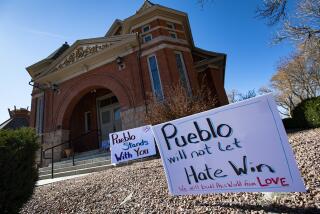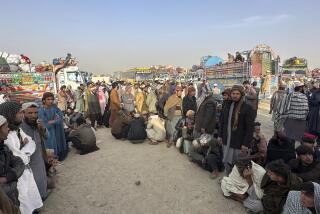Bangladesh’s counter-terrorism credentials
Selig S. Harrison’s July 2 Op-Ed article “Get a grip on Dhaka” asserted that Bangladesh is sheltering a growing hotbed of Islamist radicals.
Unfortunately, Harrison chose to recycle the same old accusations that he wrote about two years back. Therefore, his article failed to take into account the changes that the caretaker government has effected in our administration and judicial systems, which will help restore sustainable democratic norms and practices. It is insulting to our 150 million people, who have stood up to and prevailed against the challenge of radicalization in present-day Bangladesh.
The absence of any incident of extremism since November 2005 is testimony enough against the notion of increasing radicalization. The caretaker government has also launched extensive campaigns warning against the radicals’ misleading propaganda. The government took on the terrorists after the Aug. 17, 2005, bombings and hasn’t let up since -- even after a series of commendations from world leaders, including President Bush.
The extensive investigation by Bangladeshi law enforcement agencies dismissed the alleged connection between Bangladeshi extremist outfits and Al Qaeda or other international terror networks. In fact, the top Islamist leaders, who perpetrated countrywide acts of terrorism in 2005, had been executed under the existing law. All Islamist parties that allegedly propagate militancy, terrorism and intolerance have been banned by the government. Any person found to act behind banned outfits will face a harsh sentence, from 25 years of rigorous imprisonment to life imprisonment. Bangladesh has also taken steps to guard against terrorist-financing organizations by strengthening financial intelligence units operating in the Bangladesh Bank and by amending the Anti-Money-Laundering Act of 2002.
Bangladesh is perhaps the only country in the world that arrested, prosecuted (under the open judicial process) and eventually executed all six masterminds of a terrorist network. Bangladesh’s principled position of condemning terrorism in all its forms and manifestations, be they in the name of religion or any other ideological pursuit, has been appreciated across the globe.
Since 9/11, the U.S. media have broadly highlighted and rightly appreciated the government’s initiative to fight corruption. “In Bangladesh, ‘a Quiet Revolution’: War on Rampant Graft Brings Pain, Promises,” read a news analysis in the Washington Post on Oct. 3, 2007. Time magazine published a cover story on Bangladesh in April 2006, concluding that “a nation long plagued by natural disasters, poverty, corruption and violence may finally be on the verge of a happier future.”
Therefore, the allegation that Al Qaeda cohorts and the group’s fugitive leaders are building terrorist bases in the jungles of Bangladesh is totally speculative. Had Harrison taken a visit to Bangladesh, he would have come across a Bangladesh vastly different from his imagination.
Bangladesh watchers should know that the country is making sincere efforts to strengthen democracy, accelerate economic growth and energize social harmony and progress. As a part of this process, the government has undertaken several measures to eradicate corruption, effect institutional reforms, encourage respect for human rights and rule of law and promote freedom through alleviation of poverty, elimination of illiteracy, empowerment of women and restoration of accountable government.
Bangladesh is working toward holding free and fair elections before the end of 2008, as stipulated in the Bangladesh Election Commission’s road map. To address fears of election fraud, Bangladesh is poised to be the first-ever country in the region to issue digital national identity cards for more than 80 million eligible voters.
Regrettably, Harrison’s Op-Ed article is silent on all these steps taken by the caretaker government. It also failed to recognize the extraordinary role played by the interim head of the government, Chief Advisor Dr. Fakhruddin Ahmed. Mentioning the army chief as “Bangladesh’s military ruler” and drawing comparisons to Pakistan’s President Pervez Musharraf was also imprudent and inaccurate. Bangladesh’s armed forces and other law enforcement agencies have prepared for the orderly transition to a sustainable democratic government in Bangladesh. Gen. Moeen U. Ahmed, chief of Bangladesh’s armed forces, has made it abundantly clear in interviews with the local and foreign media that neither the armed forces nor he has any desire to meddle in the country’s politics. Indeed, Bangladesh’s army has played an uncompromising role in securing and safeguarding the country’s integrity and sovereignty. Sadly, Harrison ignored this fact too.
On regional stability and peace, Bangladesh and India have been cooperating to combat terrorism in the region through bilateral and multilateral instruments. It is in the interest of India and Bangladesh, both being members of the South Asian Assn. for Regional Cooperation, to ensure peace and stability in the region.
The government of Bangladesh remains committed to the task with which it is entrusted and would appreciate a true reflection of its efforts. It is because of sincere and honest governance that the people of Bangladesh are on the verge of realizing their hope for a vibrant and democratic future, and we would appreciate some understanding from our friends and well-wishers.
Sheikh Mohammed Belal is the deputy chief of mission for the Embassy of Bangladesh in Washington.
More to Read
A cure for the common opinion
Get thought-provoking perspectives with our weekly newsletter.
You may occasionally receive promotional content from the Los Angeles Times.






